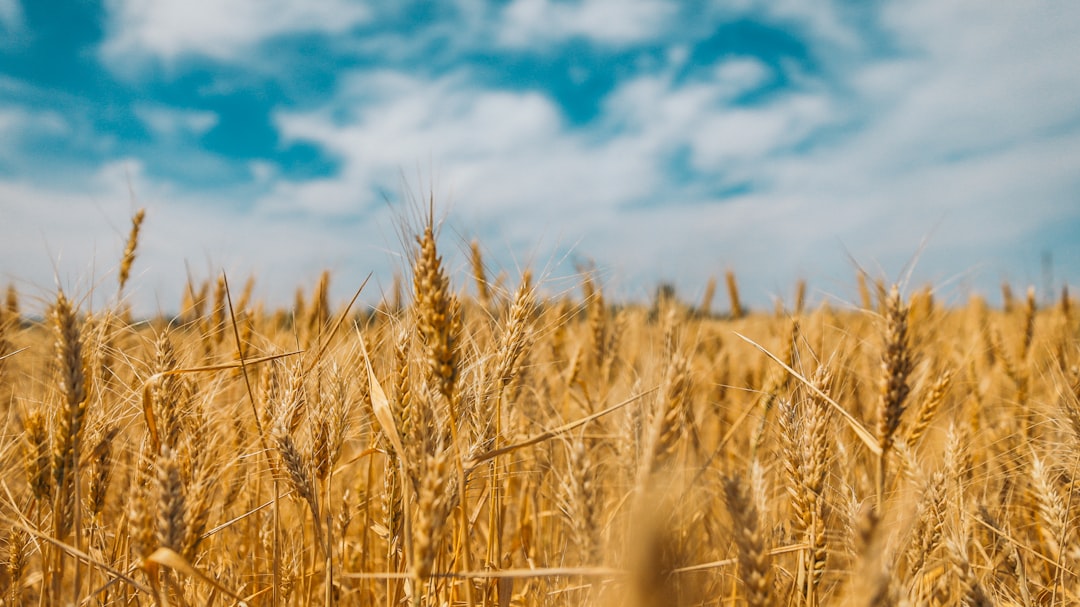Iowa’s economy is deeply rooted in agriculture, but its impact extends far beyond the cornfields. As a leader in food production, renewable energy, and advanced manufacturing, the state has built a diverse and resilient economic foundation. With a strong workforce, innovative research institutions, and a commitment to sustainability, Iowa continues to evolve as a key player in the national and global economy.
In this article, we explore ten fascinating economic insights that define Iowa, shedding light on its major industries, economic trends, and future opportunities. From its role in ethanol production to its expanding tech sector, these insights reveal how Iowa’s economy thrives in a rapidly changing world.
The Heartland’s Agricultural Might
Kansas, often referred to as the “Breadbasket of the World,” stands as a testament to the power of agriculture in shaping an economy. With vast fields stretching across the horizon, it’s no wonder that agriculture plays a pivotal role. Wheat is the star of the show here, with Kansas consistently ranking as one of the top wheat-producing states in the U.S. The state’s fertile soil and favorable climate conditions provide the perfect environment for growing wheat, corn, and soybeans. These crops not only feed the nation but also contribute significantly to the state’s GDP. Without such agricultural prowess, Kansas’ economy might look very different today.
Energy Production: A Windy Affair

Kansas isn’t just about fields of grain; it’s also about harnessing the wind. The state’s wide-open spaces are perfect for wind farms, making it one of the leading states in wind energy production. Wind turbines dot the landscape, generating renewable energy that powers homes and businesses. This shift towards renewable energy has not only created jobs but also provided an alternative revenue stream for the state. As the world moves towards cleaner energy sources, Kansas finds itself at the forefront, showing that embracing natural resources can lead to economic prosperity.
Manufacturing Strengths in the Sunflower State
Beyond agriculture and energy, Kansas boasts a robust manufacturing sector. From aircraft parts to machinery, the state’s factories produce goods that are shipped around the globe. Wichita, often dubbed the “Air Capital of the World,” plays a significant role in this. Home to major aerospace companies, the city has become a hub for aircraft manufacturing. This industry not only provides thousands of jobs but also attracts talent from across the nation. The manufacturing sector’s resilience and adaptability have ensured its continued importance in Kansas’ economic fabric.
The Role of Education and Research
Education and research institutions in Kansas are pivotal in driving economic growth. Universities like Kansas State University and the University of Kansas are not only centers of learning but also hubs of innovation. Research initiatives, especially in agriculture and biotechnology, have led to breakthroughs that benefit both the state and the broader world. These institutions collaborate with businesses, fostering an environment where ideas can transform into tangible economic benefits. As education continues to evolve, its impact on the state’s economy remains profound.
Transportation: The Lifeline of Commerce
Kansas’ central location in the United States positions it as a key player in transportation and logistics. Major highways and railroads crisscross the state, facilitating the movement of goods. This infrastructure ensures that products, whether they be agricultural or manufactured, reach their destinations efficiently. The transportation sector not only supports other industries but also provides numerous employment opportunities. By maintaining and enhancing these networks, Kansas ensures its place as a vital link in national and global supply chains.
Healthcare: A Growing Sector
The healthcare sector in Kansas has seen significant growth over the years. Hospitals and clinics across the state provide essential services to residents, while also contributing to the economy. The rise of healthcare-related jobs, from doctors and nurses to administrative staff, underscores the sector’s importance. Additionally, research in medical fields continues to advance, with institutions partnering to address health challenges. As the population ages and healthcare needs increase, this sector’s economic footprint is set to expand even further.
Tourism: Unveiling Hidden Gems
While Kansas might not boast the grandeur of coastal beaches or towering mountains, it has its own unique attractions that draw visitors. From the historic Boot Hill Museum to the sprawling Tallgrass Prairie National Preserve, the state offers a blend of history and nature. These attractions not only provide recreational opportunities but also boost local economies. Tourism-related businesses, including hotels, restaurants, and shops, benefit from the influx of visitors. By promoting its hidden gems, Kansas taps into a lucrative economic avenue.
Technology and Innovation: The New Frontier
In recent years, Kansas has embraced technology and innovation as key drivers of economic growth. Tech startups and established companies alike find a supportive environment in the state. Initiatives to promote STEM education and tech entrepreneurship have begun to bear fruit. This shift towards a tech-driven economy not only diversifies the state’s economic portfolio but also attracts young professionals and investors. As technology continues to evolve, Kansas remains poised to harness its potential for economic advancement.
Real Estate: A Stable Market
The real estate market in Kansas offers stability and opportunity. With affordable housing options and a low cost of living, the state attracts families and businesses alike. Urban centers like Kansas City provide vibrant communities, while rural areas offer tranquility and space. This balance ensures that the real estate sector remains resilient, even in times of economic uncertainty. As more people seek a blend of urban convenience and rural charm, Kansas’ real estate market stands to benefit.
Small Businesses: The Backbone of the Economy
Small businesses form the backbone of Kansas’ economy, driving innovation and providing employment. From family-owned farms to local boutiques, these enterprises add diversity to the economic landscape. Supportive policies and a strong community ethos ensure that small businesses thrive. In towns and cities across the state, these businesses contribute to local culture and identity. Their success highlights the importance of entrepreneurship in shaping the economic future of Kansas.


